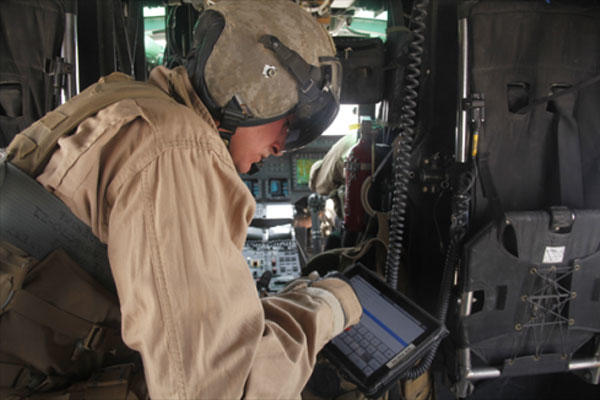Defense Department scientists are trying to develop a secure messaging system, so troops can communicate with leaders when radios go down.
"There is a critical DoD need to develop a secure messaging and transaction platform accessible via web browser or standalone native application," according to a recent Defense Advanced Research Projects Agency notice on the DoD Small Business Innovation Research and Small Business Technology Transfer Program web portal.
"The messaging platform would act as the transport for a cryptographically sound record of all transactions whether they be … contracts, troop movements or intelligence. Troops on the ground in denied communications environments would have a way to securely communicate back to HQ."
The DARPA program comes at a time when the threat of cyber attack has all branches of the U.S. military scrambling to build up their cyber warfare capabilities.
"The DoD requires a secure messaging system that can provide repudiation or deniability, perfect forward and backward secrecy, time to live/self delete for messages, one time eyes only messages, a decentralized infrastructure to be resilient to cyber-attacks, and ease of use for individuals in less than ideal situations," according to the notice.
Current legacy messaging and "back-office infrastructures, based on centralized, unencrypted hub-and spoke database architecture," are expensive, inefficient and vulnerable to cyber attack, according to the DARPA notice. Many organizations unknowingly keep duplicate information, increasing the potential for data theft and data corruption.
Phase one of the program would focus on creating a model for the decentralized messaging platform, experimenting with encryption schemes and evaluating hardware to be used in combination with the messaging platform to provide additional security.
Phase two would involve developing, testing and evaluating a working prototype, while phase three would focus on commercialization and full-scale implementation of the platform, the notice states.
Cyber warfare has become a new reality on the battlefield. Cyber operations are now a top priority in the Pentagon.
The Defense Department's Cyber Command was stood up in 2009 as attacks against U.S. military networks escalated. It is responsible for both offensive and defensive capabilities -- defending department networks and conducting cyber operations against U.S. enemies.
Defense Secretary Ashton Carter recently gave Cyber Command its first, wartime mission to go after the command-and control capabilities of the Islamic State of Iraq and Syria.
-- Matthew Cox can be reached at matthew.cox@military.com.
































